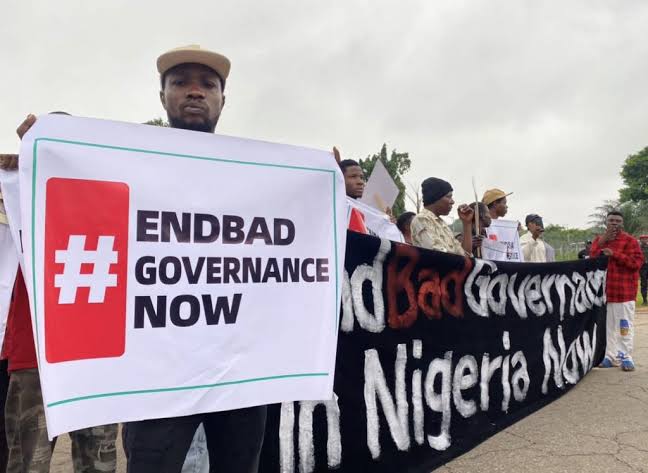
Economic activities are beginning to recover in some parts of Nigeria following the first day of the #EndBadGovernance protest. Despite this, demonstrations continue in cities like Lagos, Port Harcourt, and Benin City as protesters demand improvements to the harsh economic conditions.
In Lagos, protesters gathered in Ojota, where they were addressed by the state’s Commissioner for Information, Gbenga Omotoso, who assured them that their demands would be addressed. Similar protests took place in Port Harcourt, where demonstrators marched from Pleasure Park to the Federal Secretariat and were later addressed by police authorities.
In Abuja, hundreds of protesters initially gathered at the Berger Roundabout but were dispersed by police using tear gas. They later reconvened at the Moshood Abiola Stadium. In contrast, Kaduna remained calm with no significant protest activity.
While the first day of protests was largely peaceful across the 36 states and the FCT, violence, killings, and looting occurred in states like Kano, Kaduna, Katsina, and Borno, prompting curfews in these areas.
Leading up to the protests, calls for demonstrations intensified on social media, driven by economic hardships, including the devaluation of the naira and rising costs of essential items. Protesters urged the government to restore fuel subsidies and address other economic issues.
Despite warnings from security agencies like the police and the Department of State Service (DSS) to halt the protests, millions took to the streets nationwide. Inspector General of Police Kayode Egbetokun put officers on red alert, reporting incidents of unprovoked attacks on security personnel, including one policeman killed and others injured.
“Police stations have been destroyed. There have been attempts to take over government houses,” Egbetokun said. “In places like FCT, Kaduna, Kano, and Gombe, we recorded incidents of unprovoked attacks on our security personnel. In light of the current situation, the Nigeria Police Force has placed all units on red alert.”
The Organised Civil Society criticized the use of tear gas against peaceful protesters. According to the United Action Front of Civil Society, “The anti-hunger protesters, sensing danger and possible violent clash, decided to quietly move in peaceful procession to the Eagle Square. Security agents swooped on them and unleashed mayhem with tear gas canisters, injuring several unarmed and defenseless protesters.”
The organizers plan to continue the protests for 10 days, although authorities hope they will reconsider.








